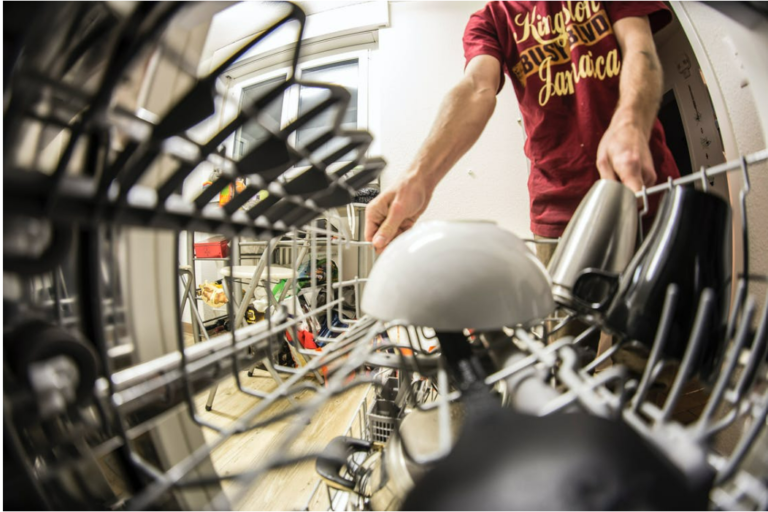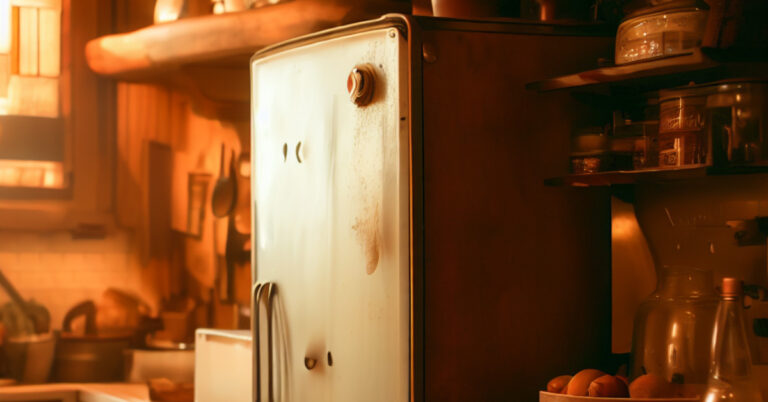Refrigerator Is Not Cooling Properly? Chilled Solutions for Fixing Refrigerator Problems.

Having trouble with your refrigerator’s cooling? Here’s how to fix it:
- Faulty compressors: A common reason for a warm refrigerator is a defective compressor. If you suspect this is the issue, check if you can hear the compressor running. It may need to be repaired or replaced if it’s not running or making strange noises.
- Lousy door seals: A bad door seal is another culprit for a warm refrigerator. Over time, door seals can become worn or damaged, allowing warm air to enter the refrigerator. Inspect the seal for any cracks or gaps and replace it if necessary.
- Blocked vents: Check to see if food items or other obstructions may be blocking the vents inside your refrigerator. Blocked ducts can prevent proper airflow and lead to inadequate cooling. Clear any blockages and ensure that the vents are free to circulate air.
- Dirty refrigerator condenser coils: Dust and debris can accumulate on the condenser coil at the back of your refrigerator, causing it to work harder and not cool efficiently. Clean the coils using a vacuum or a brush to remove any buildup and improve cooling performance.
- Temperature settings: Double-check the temperature settings on your refrigerator. Ensure it is set to the recommended temperature for the optimal cooling of your food. Adjust the settings if necessary.
- Overloading: If you have overloaded your refrigerator with too much food, it can restrict airflow and prevent proper cooling. Remove any excess items to allow for better circulation of cold air.
- Power supply: Ensure that your refrigerator is receiving a proper power supply. Check the outlet and the power cord for any issues. Try unplug your refrigerator and plugging it into a different outlet or resetting the circuit breaker if necessary.
- Professional help: If none of the above troubleshooting tips works, it may be time to call an experienced technician for refrigerator repair. They can diagnose and fix any complex issues with your refrigerator that may be causing the cooling problem.
Remember, it’s always wise to consult the manufacturer’s user manual for specific troubleshooting steps and safety precautions.
Temperature Issues
Temperature issues can be a real pain, so if your fridge is not cooling correctly, it’s essential to check the temperature settings and ensure they’re set correctly.
It would be helpful if you also inspected the freezer and refrigerator compartment and the thermostat for any signs of malfunction.
If all else fails, you may need to replace or repair the condenser fan, which helps circulate air throughout the refrigerator. Ensure that nothing blocks the fan blades and it runs smoothly.
Make sure to check the refrigerator evaporator fan. Air circulation is key to keeping your refrigerator cool at all times.
Air Circulation
Feeling the heat? If your air circulation is blocked, your refrigerator could overwork and become too warm. Refrigerators need air circulation for their cooling systems to function properly.
This means that any blockage of ducts or other openings can cause airflow restriction, leading to increased refrigerator temperatures.
To ensure proper airflow, ensure all ducts are clear of debris and not obstructed by anything else, such as food or containers.
Also, if you notice that the fan of your fridge isn’t working, running constantly or making loud noises, this could indicate a problem with its ability to circulate the air.
Please ensure all areas around the vent are clean and clear so your refrigerator has ample space to circulate cold air throughout its interior.
Cleaning Coils
If your refrigerator stopped cooling properly, dirty or dusty coils can be the culprit, so keeping them clean is essential. You’ll need to unplug the refrigerator and move it away from the wall.
Then locate the condenser coils and use a brush or vacuum to remove dust and debris.
After plugging it back in, wait a few hours to see if the issue is resolved. If not, check for other problems, like a faulty evaporator fan or a malfunctioning thermostat. These problems can cause uneven cooling or frost buildup in the freezer.
If your compressor is constantly running, this could mean an issue with its start relay that requires professional repair.
Cleaning your condenser coils regularly should prevent these issues from occurring and keep your refrigerator in top condition!
Overstuffing
Overstuffing your refrigerator can often impede its cooling capabilities, so keeping it organized and at an appropriate capacity is important.
The freezer compartment should always be filled at the top of the walls as this prevents cool air from circulating.
Also, avoid blocking vents that allow excellent airflow when packing your refrigerator. Ensure there is enough space for cold air to move freely throughout the freezer’s interior.
Stocking items in a way that allows them to breathe also improves airflow and keeps temperatures consistent.
It is also important to empty expired food and beverages regularly, as these can take up valuable real estate inside your refrigerator.
Frequently Asked Questions
Conclusion
Is your refrigerator not cooling properly? Don’t worry; you’re not alone! With the right troubleshooting tips and preventative maintenance, you can quickly have a chilled solution.
So don’t be afraid to take matters into your own hands and enjoy the freshness of an adequately cooled refrigerator!




